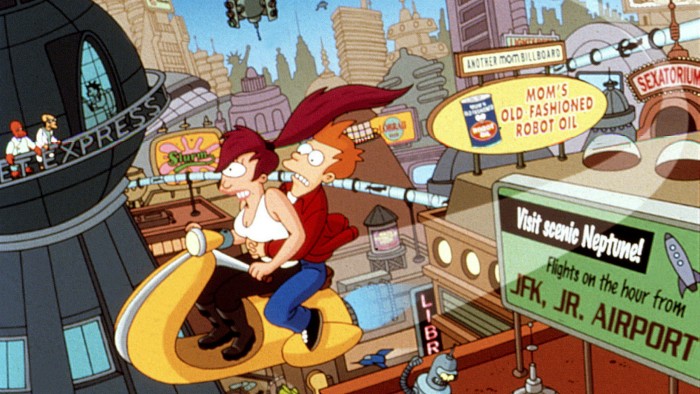Transport: throwing a hyperloop

Roula Khalaf, Editor of the FT, selects her favourite stories in this weekly newsletter.
Cartoonist Matt Groening began whisking his characters around in pneumatic tubes in the 1990s. Fast forward a few years — less, admittedly, than the millennium time-travelled by his Futurama hero — and private sector companies and universities across the globe are vying to bring superfast vacuum tube transportation into the real world.
Hyperloop technology, designed to zip people and freight around in pods, is fast, energy-efficient and supercool. Leading the real world race are Tesla founder Elon Musk, who laid out his vision in a 2013 white paper, and Virgin’s Hyperloop One. The latter has actually put a couple of people in a pod and transported them through a short section of the Nevada desert. Next up, if promise comes to fruition: Pune to Mumbai, allowing transit of the 100-odd miles in 35 minutes.
For a world that has just spent $140bn-plus bailing out airlines and has seen earthbound tubes, or subways, join the clamour for state aid, futuristic travel looks like another gargantuan cash drain.
Those building the routes reckon it will undercut fares on high-speed railways and planes. Mr Musk, who initially put a $6bn to $7.5bn price tag on his proposed Los Angeles-to-Bay Area hyperloop, reckons a $20 fare will cover operating costs. Virgin has tentatively placed a €27 return fare on a Helsinki-Stockholm hop. The mostly underwater 300 mile tract linking the two cities will cost about $64m per mile, including train sets. Economists Catherine Taylor, David Hyde and Lawrence Barr of the US Department for Transport’s Volpe centre point out that is much the same as the California high-speed rail; the latter excluding vehicles, including land. Virgin says the fare is enabled by lower construction and operating costs.
Those may well be too modest. Factor in the land acquisition costs and you get closer to $100bn, Michael Anderson, an associate professor of agricultural and resource economics at the University of California, Berkeley, told the New York Times.
Transport, like all infrastructure, has always been subject to overruns in cost and time. Futurology may bring new ways of living, but overcoming that rule of thumb may be an ambition too far.
This article has been amended to show the estimated costs of a Helsinki-Stockholm link was estimated to be $64m per mile
This Lex note is one of five on the theme of blue sky thinking. The others can be found below.
Comments